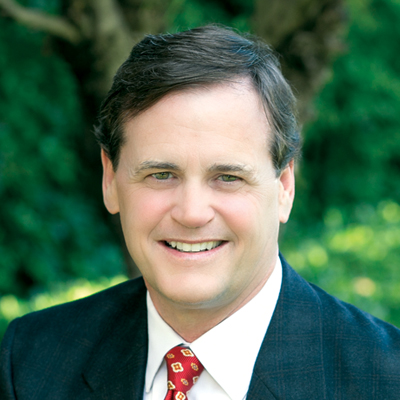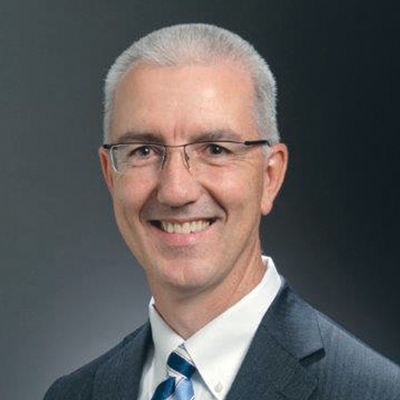Auto Insurance
Independent Streak
Independent agents take the spotlight following moves by Allstate, Nationwide and others. Special Section sponsored by LexisNexis.
- Lori Chordas
- October 2020
-





The Auto Insurance Special Section is sponsored by LexisNexis. Click on the microphone icon to listen to the LexisNexis podcast.
Key Points
- Accelerating a Need: Some of the largest U.S. personal auto insurers are expanding their use of independent agents or fully immersing themselves in the distribution channel.
- A Roadway of Options: While the sales channel is expected to grow, other modes of distribution in the market, including direct and exclusive agents, may be poised for growth.
- Making the Spend: Many auto insurers have recently reallocated resources to refine their distribution strategies to improve customer experience.
In a 2019 fourth-quarter conference call to analysts, Allstate Chair, President and CEO Tom Wilson outlined the company's transformative growth plan that included an overhaul of how the fourth-largest personal auto insurer conducts business.
Part of the revitalization plan, Wilson said at that time, recognizes customers' changing needs, largely driven by increased connectivity and advanced analytics.
But while customers are becoming more comfortable with digital approaches and self-service, he said they still prefer agents when purchasing a policy.
Allstate is heeding that call and growing its existing independent agency force by adding relationships with 42,300 domestic agents through its impending acquisition of National General Holdings Corp., which is expected to close in early 2021.
Like many of its personal auto insurance peers, Allstate uses independent agents as part of its distribution mix, which includes a large captive agency force. Last year, 6% of the company's personal lines business was written by independent agents.
For decades insurers have used agents and brokers as their primary channel of distribution. However, the rise of auto writers like Geico and Progressive, whose books of business include large direct-sales operations, has created a sizable alternative to the agent channel.
A quick glance at today's personal auto market, however, shows independent agents still play a key role in distribution, said Brian Sullivan, editor and publisher of the Auto Insurance Report and Property Insurance Report.
A large portion of the top 10 U.S. private passenger auto writers now rely solely or partially on independent agents to market and sell products. Over the years, some insurers in the line have bolstered their stake in the channel through consolidation. In 2008, Liberty Mutual grew its independent agency base to nearly 15,000 agencies with its $6.2 billion acquisition of Safeco.
Last year Nationwide, the eighth-largest personal auto writer based on 2019 direct premiums written, according to BestLink, announced its decision to fully immerse itself in the channel in an attempt to meet members' changing needs and to provide agents with longer-range growth potential.
In July, Nationwide, which held roughly 7% of the overall independent agency market in 2019, completed its two-year journey to end its exclusive agent distribution channel and transition entirely to an independent agency force across all books of business, including personal auto.
Recent events such as the COVID-19 pandemic highlight opportunities in the line, said Jeff Rommel, senior vice president of property/casualty sales and distribution at Nationwide.
“Distribution has to match customer expectations, and COVID is accelerating that in many ways by highlighting consumers desire for fast, easy digital solutions and different options from multiple carriers, coupled with the advice and counsel of a trusted professional like independent agents,” he said.

Like so many things in the property and casualty market, “distribution changes very gradually.”
Brian Sullivan
Auto Insurance Report and Property Insurance Report
Making the Move
Recent insurance shopping numbers, however, tell a slightly different tale.
During the U.S. government-mandated COVID shutdown earlier this year, auto insurers that rely on exclusive agents saw higher shopping growth rates than independent agents and direct channels, ending the 2020 second quarter at 15% growth year-over-year for June, according to the latest LexisNexis Risk Solutions Insurance Demand Meter, which reports quarterly U.S. auto insurance shopping activity.
But those numbers aren't deterring companies like Nationwide from commiting to independent agency distribution and projecting continued sales growth from the channel.
This year, nearly 2,000 existing agents under the Nationwide brand completed their transition to the independent agency model, joining the more than 10,000 U.S. independent agents that already have relationships with the company.
Bob Rusbuldt, CEO of the Independent Insurance Agents & Brokers of America, has long predicted shifts favorable to the independent agent channel.
“For the last 25 years, I've been saying that one day there would be just two distribution channels in the U.S.—the direct channel and the independent agency system. Now there is example after example proving that out, including Nationwide's move to become fully independent and Allstate's purchase of National General,” he said.
AM Best senior analyst Michael Venezia pins many of those moves on evolving consumer behavior.
“In today's mobile-centric, internet-driven world customers want choice, and being offered a quote from just one insurer doesn't provide them many options,” he said.
“Maybe it's not the cheapest price, but consumers now are more interested in having available options. And that's where independent agents can really shine as service advisers,” Venezia said.
Allstate's Wilson hopes the company's expanding independent agency force and its planned $4 billion investment to acquire National General will not only scale up Allstate's auto business but also make it a top 5 carrier in the independent agency distribution channel.

In order for independent agents to grow their share of the market, they’ll need to “provide digital solutions or robust websites or be active in social media to go toe-to-toe with their direct writer counterparts.”
Jeff Rommel
Nationwide
Full Speed Ahead
As auto insurers' push into the independent sales channel deepens, Sullivan points to growth potential in other distribution channels.
Last year, Progressive Insurance Group, which held onto its No. 3 slot in the Top 10 U.S. private passenger auto writers ranking by 2019 direct premiums, saw premiums rise 14.7% to $31 billion, while competitor Berkshire Hathaway, Geico's parent company, reported a 5.5% climb to $35 billion in premiums, according to BestLink.
“If you strip out both companies, almost no other direct response enterprise has over the years exploded in a significant way,” Sullivan notes. He pins the success of Geico and Progressive on “being two extraordinary businesses rather than on a shift toward a different distribution model.”
As consumer demand for quick service and near-real-time quotes continues to reinforce the need for online and mobile tools offered by direct writers, Sullivan said that will drive future growth in the channel.
But the amount of new sales coming from the channel will largely depend on “direct response writers becoming better equipped at providing information to customers and speeding up the insurance-buying process,” he said.
And, added AM Best's Venezia, future growth flowing into the line from the channel will one day reach a plateau due to the limited availability of premium in the market.
The exclusive agency sales channel remains another “relevant” distribution model in the personal auto insurance market, Sullivan said. But he hasn't seen any insurers move into the channel in recent years.
For decades, carriers like Farmers and American Family Insurance, have made exclusive agents a big part of their distribution mix. Market leader State Farm's nearly 100-year history of selling almost entirely through exclusive agents is a testament to the channel's success, Sullivan said.
State Farm agency vice president Ken Heidrich said its captive agency force is a key differentiator for the company. “We believe in the power of relationships and that many people want an agent who can help them prepare for and recover from the unexpected,” he said.
Last year, market behemoth State Farm captured more than 16% overall market share in the personal auto line despite a 2.6% drop in direct premiums to nearly $41 billion, according to BestLink.
But in order to maintain its top position in the market and regain some of its lost market share and premiums, Sullivan said the company may one day have to break from the norm and transition into additional distribution modes.
Many of its competitors, such as Farmers, Allstate and Liberty Mutual, are continuing to find success in selling through multiple channels, including online, and exclusive and independent agency forces.
Sullivan said the availability of options, digital approaches and partners offered by multichannel distribution is a recipe for success for many auto insurers.
“But today you can still be a very successful small-to-midsized carrier with a single distribution channel. Look at Amica, for example. It doesn't need a big agency force. Hanover can stay with agents,” Sullivan said. Even large companies like Geico can likely survive with just one channel, he added.
Around the Bend
Earlier this year, the U.S. personal auto insurance market suffered an “out of the ordinary” drop in auto insurance sales shopping and new business growth influenced by government-mandated COVID-19 shutdowns and the impact from civil unrest and other widespread national events, according to the LexisNexis Risk Solutions Insurance Demand Meter report.
By midyear the trend slowly began to reverse, and in May and June shopping growth and new business volumes rebounded to slightly above 2019 levels, reaching 8% growth by the end of this year's second quarter, LexisNexis Risk Solutions reported.
Despite the rise of unexpected events and financial downturns, premiums in the line have over the years continued on an upward trajectory.
Last year, the U.S. private passenger auto segment had nearly $254 billion in combined direct written premiums, a 2.9% rise from the prior year, according to BestLink.
This year insurers in the line are finding themselves in the midst of some “formidable challenges,” including market competitiveness, adverse loss severity trends and a downturn in sales caused by COVID-19, according to AM Best's Market Segment Report, Personal Auto Stuck in Neutral as Fewer Claims Offset Premium Losses, released in July.
However, AM Best's Venezia, who contributed to the report, believes auto insurers armed with the “right distribution channels” and investments to build upon those channels are well-positioned to overcome those hurdles and continue growing their business in the line.
Insurers lacking in scale, technological capability, distribution platform advantages or specialized expertise, on the other hand, could find themselves struggling to compete and having to defend their market position or fend off unprofitable results, the report noted.
In recent years many auto insurers, including several of the line's top writers, have reallocated resources to refine their distribution strategies to improve the customer experience for purchasing policies and processing claims, according to the report.
Sullivan expects investments like that to continue, along with some future additional shifts in distribution. But like many areas of the property/casualty market, he said, “distribution changes very gradually” and some of those changes could take some time.
“Overall, there's much stability in what's going on in the market right now,” Sullivan said. “Companies like Geico and USAA, for instance, aren't jumping into agents. We aren't seeing State Farm leaping into direct.”
But some industry experts speculate that could one day change.
One certainty in the market, Hub International chief sales officer Robb Lanham said, is “the value independent agents bring with their knowledge, insights and understanding to help navigate the purchase of policies. For agents, the transition to take on an adviser role than just providers” will continue to grab the attention of auto insurers and further solidify and grow agents' place in the sector.
“I can Google how to hang a light, but at the end of the day I want a trusted electrician, a trusted adviser, who can guide me through that process and the pitfalls of doing it wrong or about the product,” he said. “Process is important, but so are knowledge and experience.”
In order for independent agents to continue growing their share of the distribution stake, Nationwide's Rommel suggests they “provide digital solutions or robust websites or be active in social media to go toe-to-toe with their direct writer counterparts.
“One of the advantages of independent agency distribution is that agents can match direct carriers with those tools and bring advice and a whole suite of solutions to the table,” he said.
As events such as COVID-19 and the imminent introduction of autonomous vehicles continue to unfold, will they bring new changes to the personal auto insurance market's distribution landscape? Perhaps, Sullivan said.
“But different customers want to buy things different ways at different points in their lives,” he said.
“Given the complexity of insurance, which is not going away, different distribution channels will likely exist forever,” Sullivan said.
Technology at Every Turn
While discussing his company's impending purchase of National General Holdings Corp., Allstate Chair, President and CEO Tom Wilson told investors and other stakeholders that he hopes the acquisition will place Allstate “squarely in front” of independent agents with a broad product portfolio and good technology.
Technology has been a pain point for some U.S. personal auto insurers in the race for market share. And as direct writers continue to develop and bolster their use of powerful digital and online platforms, agents are often left scrambling to meet those needs.
Insurers that use independent agency distribution are now trying to change that by investing in technology and spending big dollars to arm agents with digital and analytics tools needed to build their businesses and compete with their direct writer counterparts.
“It used to be that agents were really good at telling people how they're going to conduct business but that's not winning anymore. All of a sudden distribution became who can more quickly produce a quote and put it into the hands of a customer. Now customers prefer to go online, answer six questions and get a quote. Process has taken precedent over product and generations like millennials prefer speed over accuracy,” Robb Lanham, chief sales officer for Hub International, said.
Nationwide, in its transition this year into a fully independent agency force, has recognized those changes and is providing tools to agents to meet those needs. Among some of those tools are the new Nationwide Express mobile app, which pulls data from a member's driver's license to help agents quote an auto policy in less than one minute, and a suite of telematics solutions including SmartRide and SmartMiles that allow members to earn discounts based on their driving experience, said Jeff Rommel, Nationwide's senior vice president of property and casualty sales and distribution.
“Today fewer customers are walking through the front door of an agency, so agents have to become more digital and go to consumers in the venue and form they're now in,” said Rommel of Nationwide, which has used independent agents since 1922. He credits the global coronavirus pandemic for accelerating that shift. “It's a trend that was coming about anyway, but the pandemic has really prompted carriers to move more into digital and align agents with solutions that can help meet the needs of today's consumers.”
Learn More
The Allstate Corp. (AM Best # 058312)
State Farm Mutual Automobile Ins. Co. (AM Best # 002479)
For ratings and other financial strength information visit www.ambest.com